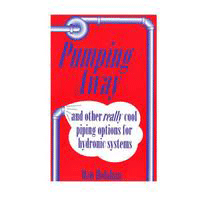As food-processing companies pare down to their core competencies, they are in the market for suppliers that can perform a variety of tasks as well as provide materials, according to a recent study for the International Association of Food Industry Suppliers. The study, conducted by Frank Lynn & Associates, Chicago, reveals that more and more food processors are outsourcing a wide variety of functions, including some that might be considered their core competencies, such as research and development.
Jeff Baden of Frank Lynn noted that food-processing companies are "de-verticalizing" their operations, getting out of the upstream aspect of making their products. For example, soup companies have divested themselves of the farms that provide the meat and vegetables for the soup. "They decided that their core competency was making soup," Baden explained. "So they sold the farms and the cannery."
Baden believes the next step will be the food processor as marketing entity. "A bunch of manufacturing companies have already done that," he said. "Nike may be the best example. They have outsourced the manufacturing of their shoes to factories in Third World countries. They've taken some flak for that, but they've become an expert marketing company."
The growing trend of outsourcing creates business opportunities for distributors, Baden pointed out. "Outsourcing in many companies has meant letting their maintenance staff go," he said. "But they still have a need for maintenance services. That's where the distributors can step in."
One opportunity is integrated supply, which is a form of outsourcing. Another is providing the technical expertise that went away with the maintenance people. Baden also cited inventory ownership, automating systems and redesigning the processes through which the food-processor customer buys, manages, uses and pays for MRO products.
Baden suggested that distributors also look at design and engineering.
"Distributors sell along a spectrum, with commodities at one end and sophisticated, integrated processing systems at the other." he said. "Those systems are very design-intensive. The value of the products used in them is relatively low, compared with the price of the expertise necessary to put them together."
Logistics - transportation, warehousing and inventory management - is another chance for distributors to provide services for their customers. Other examples, such as R&D, outside the traditional distributor's core competencies "can get real funky," Baden said.
"Do distributors want to get into the business of figuring out how to make milk last longer?" he asked. "No, but they might be able to come up with a better process that will take costs out. That is a kind of research and development: a design-build approach."
Changing a mindset can mean more money for distributors that can make the shift, he added. "There's more profit in services than in most products in distribution. It's important for the distributor to be cognizant of a reshuffling of the deck. Moving down the spectrum and 'de-verticalizing' changes who is actually making the product. If a food processor outsources its product, the distributor is likely to lose the business to whatever distributor is selling to the company that it's being outsourced to."
Baden suggested an "offensive approach" to maintaining a relationship with a company that has outsourced its production, and therefore its purchasing, to a "co-packer" - a company that processes product to the company's standards. "Distributors can ask that co-packer what kinds of products it might buy locally. They might be able to get some of that business. Distributors should remember that it's the customer, not the nature of the relationship, that has changed."






